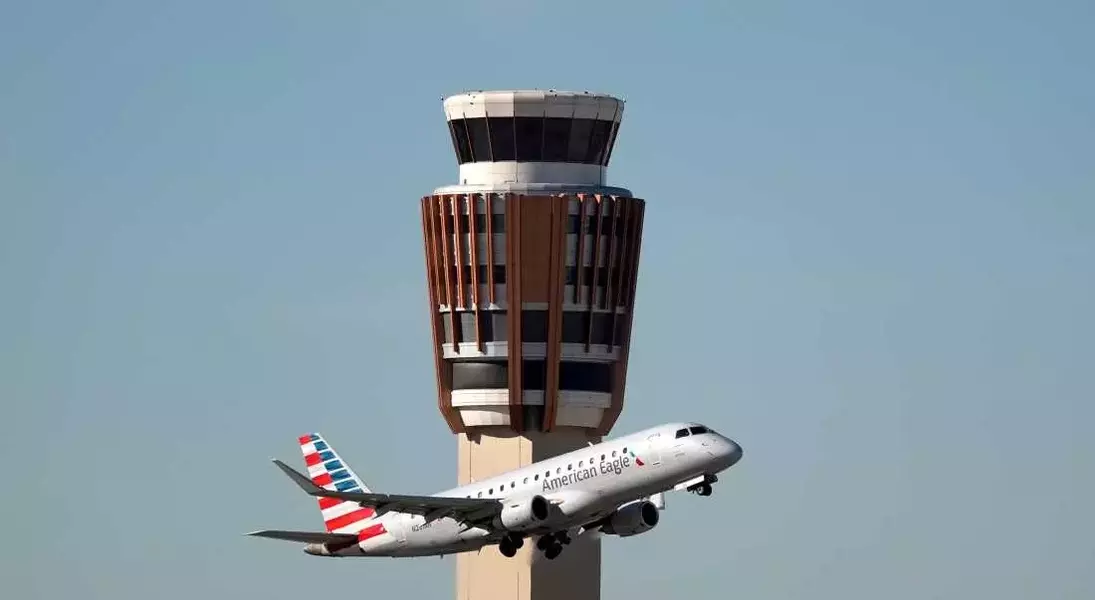



After the recent federal government reopening, the nation's air traffic controllers anticipate receiving their owed salaries for their work during the 43-day shutdown. While Transportation Secretary Sean Duffy has pledged swift compensation, many controllers harbor skepticism, drawing on past experiences with delayed payments. The previous government shutdown in 2019 led to significant legal battles over unpaid overtime and other wages, with some controllers waiting years to receive their due.
Air Traffic Controllers Face Repeat Pay Challenges After Government Shutdown
In Washington, D.C., the federal government's recent recommencement of operations has brought a glimmer of hope to air traffic controllers, who are now eligible for payment for their dedicated service throughout the 43-day shutdown. Transportation Secretary Sean Duffy has expressed confidence that controllers will promptly receive a substantial portion of their outstanding wages within a few days.
However, this promise is met with a degree of apprehension among some air traffic controllers. Many vividly recall the 2018-2019 government shutdown, a period during which numerous controllers initiated legal proceedings against the federal government to secure the overtime and additional compensation they believed they were owed. That legal action ultimately culminated in a settlement, but the resolution process spanned several years. One current controller, speaking anonymously to NPR to avoid potential repercussions from the Federal Aviation Administration (FAA), recounted receiving a payment from that settlement only weeks before the most recent shutdown commenced in October. This individual, based at a high-altitude traffic facility in the Midwest, expressed concerns about the FAA's previous shortcomings in accurately tracking overtime and shift differentials, anticipating a similar arduous task of calculating their entitlements from the latest shutdown.
Secretary Duffy, during a press conference in Wisconsin, outlined a more expedited payment plan this time. He stated that controllers could expect to receive approximately 70% of their total owed pay within 48 hours of the government's reopening, with the remaining 30% disbursed about a week later. Duffy urged controllers to continue their vital work, emphasizing their patriotic duty to maintain effective airspace navigation for the American populace.
Despite these assurances, some controllers remain cautious. Another anonymous controller, working at a major U.S. airport, echoed the sentiment of past non-payment. This individual detailed the complex nature of their compensation, which includes various differentials for overtime, night shifts, Sunday work, and training. Recalling the exhaustive manual calculation required after the 2019 shutdown, this controller noted that full compensation was not received until May, despite the shutdown concluding in January. The National Air Traffic Controllers Association, the union representing these professionals, refrained from commenting on the past lawsuit and referred inquiries about the current back pay situation to the FAA. Both the FAA and the Department of Transportation have yet to provide clarification on the mechanisms for delivering the outstanding payments. Notably, Secretary Duffy has also voiced support for President Trump's proposal of a $10,000 bonus for air traffic controllers who worked diligently throughout the recent shutdown, a suggestion that initially surfaced on social media.
The recurring issue of delayed compensation for essential federal employees during government shutdowns reveals a fundamental vulnerability in our system. It is imperative that mechanisms are put in place to ensure that those who serve the public, particularly in critical roles like air traffic control, are not subjected to financial hardship due to political impasses. This situation underscores the need for robust contingency plans and clearer, more efficient administrative processes to prevent such delays in the future, fostering trust and stability within the federal workforce.
